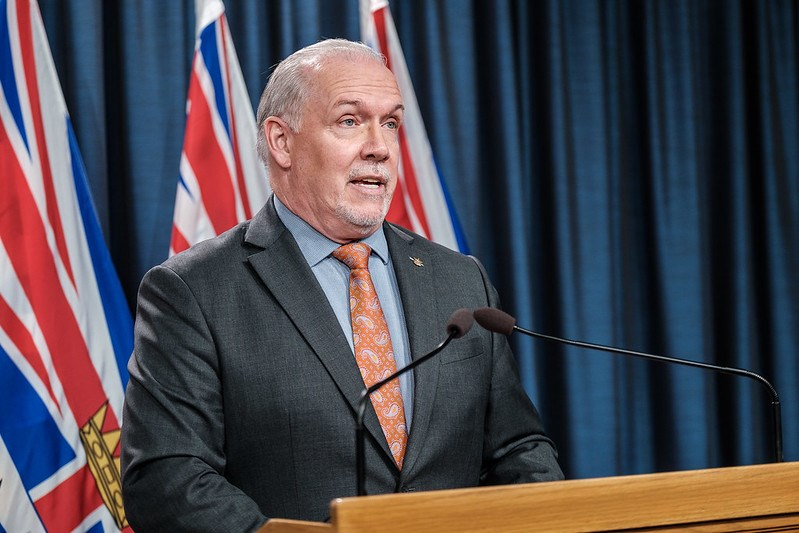B.C. Premier John Horgan announced Wednesday $1.6 billion in funding allocated to support the province's response to COVID-19.
Horgan shared details of the funding, as well as a new program, and support for existing programs, as part of B.C.'s Fall Pandemic Plan, a strategy that focuses on healthcare in the province as we enter respiratory illness season alongside the ongoing COVID-19 pandemic.
As part of the new Hospital at Home program, 7,000 jobs will be opened up. Those jobs will feature positions that can allow those with no healthcare experience on the job training - a possibility that Horgan says can assist those who are in industries affected by widespread COVID-related layoffs, such as in the hospitality sector.
The Hospital at Home program will begin in Victoria and then be expanded to other acute care facilities across B.C. Health Minister Adrian Dix says this "innovative program" will find patients meeting the criteria able to receive 24/7 care at home, under the direction of hospital personnel. The program is being launched in order to curb the spread of COVID-19 in the hospital setting.
Additionally, B.C. will now see a "significant expansion" of our influenza immunization plan. B.C. has acquired 450,000 additional doses of the influenza vaccine, bringing the province's stores to a total of two million doses. Further, B.C.'s seniors will be able to access the newly-acquired 45,000 high-dose vaccines which will be made available to residents of long term and assisted care facilities.
Provincial health officer Dr. Bonnie Henry elaborated on the vaccination plan, noting that B.C.'s active approach to combatting influenza will be more critical than ever before this year.
British Columbians must "be prepared for what might come next," said Henry of the impending change of seasons, and, with it, the arrival of the increased risk of respiratory illness in tandem with the province's recent uptick in COVID-19 cases. Hospitalizations due to influenza typically begin to rise in September and peak in December and into January. In the past, hospitalizations for respiratory illnesses have been as high as 126 during the peak of flu season in December and January.
The fear is that, in a worst-case scenario, large numbers of people could become ill with either influenza or COVID-19, or both.
In March, to prepare for a worst-case scenario, the province cancelled all elective surgeries, and designated some hospitals for COVID-19 patients. B.C. health officials do not plan to resort to system-wide cancellation of surgeries and other hospital services this fall.
Rather, it would be more targeted according to regions experiencing the worst surges. It is expected that the Lower Mainland would experience the worst surge.
Health officials also plan to maintain current visitations for residents of long-term care homes.
Health officials are crossing fingers that the flu season will be comparatively mild, as a result of all the measures that people have become accustomed to: social distancing, limiting social interactions, frequent hand-washing, the wearing of masks and increased immunization.
As far as the province's ongoing COVID-19 response, Henry reiterated the plan to put more contact tracers on the job, as well as plans to increase testing capacity up to 20,000 tests per day.
Horgan said he wanted to appeal to all British Columbians to follow all the directives put in place in the province to fight COVID.
The premier added that if B.C. is going to return to the enviable position of leading the country in our successful approach to keeping COVID-19 cases at a minimum, residents must focus on working together.
Acknowledging that students, parents, teachers, and school staff are perhaps apprehensive about the full return to the classroom that begins in B.C. this week, Horgan emphasized his office's commitment to public health and safety.
"I want everyone to know in B.C. we will do everything we can to keep people safe," said Horgan.
With files from Nelson Bennett/Glacier Media




